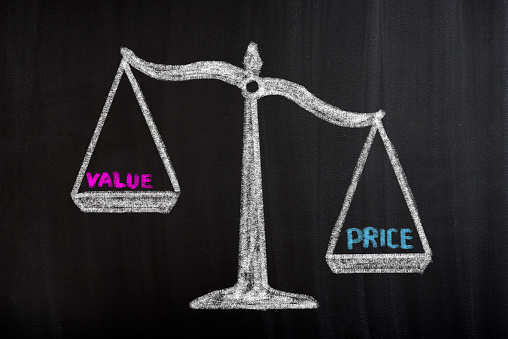Questions 1
Price fixing can be termed as a concurrence among participants dealing with similar products in a market to buy or sell the product, service, or commodity only at a predetermined price or retain market conditions by controlling supply and demand and therefore prices are maintained at a given level. Some of the suspicious indications of price fixing are competition in a given industry.
Companies have employed competitive strategies. Some of the strategies in use can be legal or illegal depending on the industry. The obvious intention of price fixing is to push the price of a commodity or service as high as possible. These may also be done with an intention of stabilizing prices. The significant attribute of price fixing is an agreement concerning price, whether articulated or implied. This requires a plan involving sellers or buyers. Sellers may have the same opinion to put on the market at a common objective price; place a common least price; or purchase the product from a seller at a specified utmost price.
Question 2
As far as the soap industry is concerned, people in senior managerial level from consumer goods giants including Procter & Gamble Co. met behind closed doors in restaurants around Paris, purportedly to fix the price of laundry detergent in France. Between the year 1997 and 2004, Autorité de La agreed to impose fines totaling €361 million ($484 million) on P&G, Henkel AG and Colgate-Palmolive Co. for coming to a secret understanding to set the soap prices in France (Colchester, 2011) .
The group’s interests diverged and finally disintegrated which the French regulator termed as a long running systematic plan that pushed up prices for the end users. The companies used false names to cover their identity at the meetings where Henkel false name was “Hugues”, “Pierre” for P&G and “Christian” for Colgate-Palmolive according to the French authority report
By the year 2004, the scheme started to fall apart. The companies couldn’t concur on how to deal with price increments and promotions. The treaty was first broken by Unilever by introducing a June “D-Day” deal of 10% off. P&G responded by slashing the price on its entry-level Gama detergent by 25% at the end of the year. At the beginning of 2005, Henkel followed suit with 40% off one of its detergents. Subsequently, both Unilever and P&G unveiled buy-one-get-one-free deals.
Question 3
Companies have the same opinion to set elevated prices, so that customers have no alternative but to pay money for products at the high price. They also have the same opinion to set the amount added to the cost price of good to cover overheads, sales, extra charges or discounts on goods or services at equal rates. Companies also concur to set their utmost buying price so that a seller of a product, service or commodity will be required to sell at the set price. Price fixing can also take place in the credit market, where companies agree to regulate credit conditions to consumers. Many states have “below sales-cost laws,” which prohibit businesses from selling goods or services below market cost, if their intent is anti-competition.
Illegal price fixing only takes place when there is conformity between companies to fix prices. A company, performing on its own, may use justifiable efforts to get hold of the best price they can, together with the ability to move up prices to the disadvantage of the general public. Further, companies that conform to the same prices without an express or implied agreement are not in defiance of price fixing regulations.

If firms within an industry are in an oligopoly and go into a secret or illegal cooperation in order to cheat or deceive others they act as a monopoly. Operating as a cartel can bring to a halt revenue and prices from being uneven in that industry.
Often companies in an oligopoly benefit from being in an association of manufacturers or suppliers formed to maintain high prices and restrict competition because it confines competitive responses that might reduce earnings by attacking each other’s sales portion. When
Companies are colluding it would be helpful to any individual company to increase productivity and offer goods or services at a lower price than others in the cartel. However this would result in all companies following suit; the market would be flooded due to the rise in supply.
Questions 4
As a manager, the ultimate reason for being hired by the firm is to protect it from falling in such a situation, thus, I would fast think on several strategies to apply so as to ensure that the normal operating schedule of the firm in the products market retains its level as well as creating more room for expansion and development in an ideal to be the best in the market. Due to the fall apart of the firms there tends to be a lot of completion in the market where numerous substituted seek market share without a central price fixing procedure done by the cartel.
So as to compete and overcome the challenge posed by the substitutes in the market, I would first think in line to what all the laundry detergents do not offer to their consumers including our product. Take for instance, I represent ‘Omo’ laundry detergent, I would think in terms of manufacturing stronger attractive and packaging in small sizes brands with healthier and stylish features which will automatically distinguish our product from others in the market. This way, I and my company can fix prices freely without fear of over pricing or underpricing the brand as it is not the price that will determine its demand but other attractive features to the potential customer.
References
Surhone, L., M. (2009). Price Fixing: Product (business), Price Control, Competition Law, Monopoly, Vendor Lock-in, Bid Rigging, Collusion, Cartel, Oligopoly, Variable Pricing.
Germany: Betascript Publishers,
Colchester, M. (2011). Dirty secrets in soap price. The Wall Street Journal. December 2011

